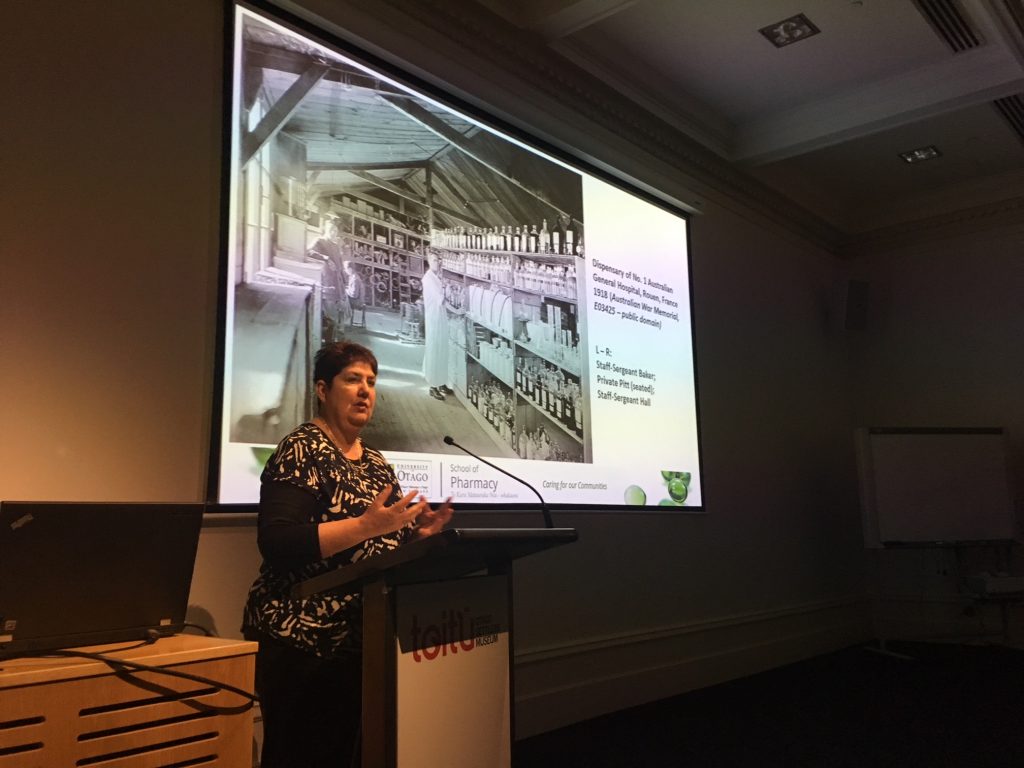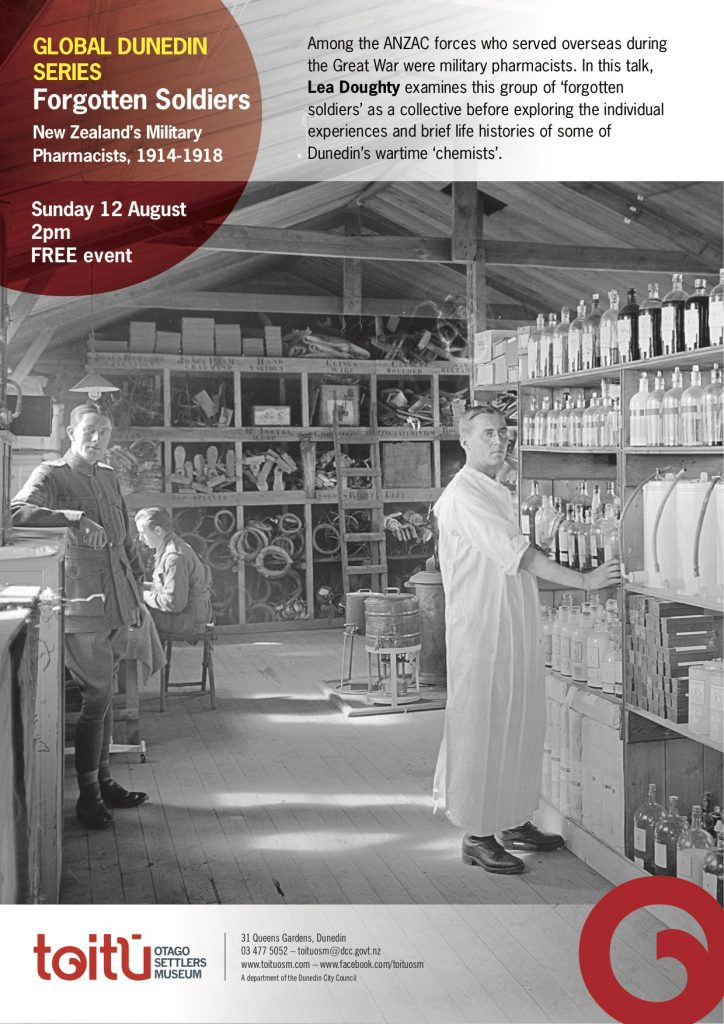Dunedin’s Wartime Chemists
In her Global Dunedin Lecture at Toitū on 12 August, Lea Doughty (PhD Candidate, School of Pharmacy) used a life history approach to track the wartime experiences of pharmacists who served with New Zealand forces during World War I. Lea’s research is on military medicine during the Great War, focusing on pharmacy and the ANZAC forces. Her Global Dunedin lecture touched on the reasons why pharmacy and pharmacists are often a forgotten aspect of New Zealand’s histories of World War I, largely because their work takes place at a distance from the main event, or they were diverted into other military roles. In total, 192 men who had worked as pharmacists served with New Zealand forces, 18 of whom were born in Dunedin. Of the 192 men, 27 died on active service. These included William Sloan, the first pharmacist to enlist, who died of wounds he sustained at Gallipoli, and Harold Dodds of Port Chalmers who died at Passchendaele in October 1917. Looking wider than the Dunedin cohort, Lea highlighted the range of roles pharmacists were given. William Brosnahan, from the West Coast, was utilised as a vet in the Imperial Camel Corps. Interestingly, there was one Māori chemist who served with the New Zealand forces. Jack Hiroti attained the rank of Sergeant in World War I, and went on to serve with distinction in World War II with the 28th Māori Battalion. Many thanks to Lea for providing an interesting insight into a little known aspect of New Zealand’s military history, and for bringing to light the personal histories of these servicemen.
Tracing Dunedin’s wartime ‘chemists’
Our next Global Dunedin Lecture will be presented by Lea Doughty (PhD candidate, School of Pharmacy, University of Otago) on Sunday 12 August at Toitū (for details see poster). In this talk Lea will discuss the pharmacists who served in New Zealand forces during World War 1, trace some of their experiences during and after the war, and place this history into the context of the global history of military medicine. This is a free talk and all are welcome!



